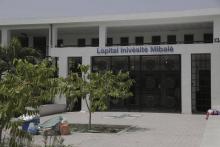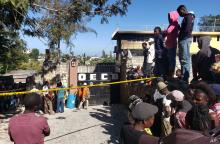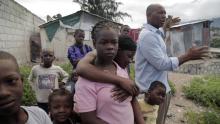We Should Give Haiti Compassion, Not Sick People
Most U.S administrations have been ambivalent or hostile to Haiti. Even the administrations that have ostensibly wanted to help it have at times done tremendous harm. The Trump Administration is amongst those that are hostile to Haiti - too black, too poor, no money to be made there. Not only is the United States deporting Haitians, including those with COVID-19, it is preparing to send back former death squad leader Emmanuel "Toto" Constant. He is truly a man who belongs behind bars, either American or Haitian, but now is not the time to further destabilise Haiti with his presence. The Washington Post Editorial Board calls for a compassionate approach - which will not happen unless the electorate in key states like Florida demand it.












